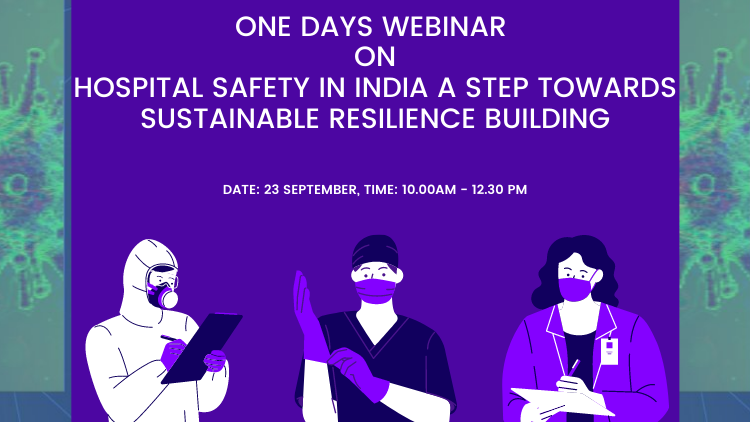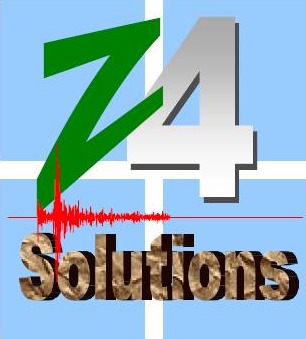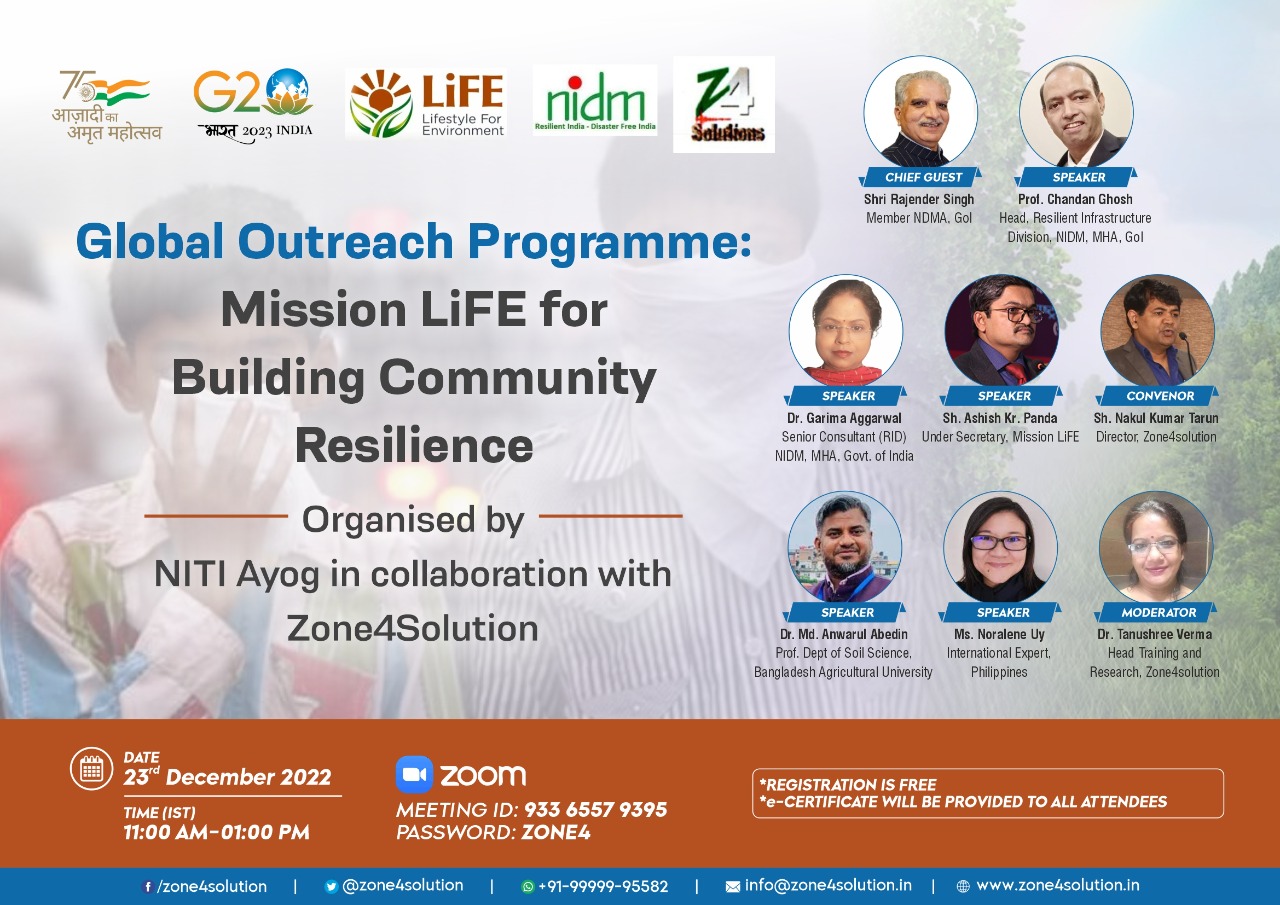
Registration Form
Concept note:
One days Live Webinar
Topic: Hospital Safety in India a step towards sustainable resilience building
Date : 23rd September, time 10.00 am 12.30 pm


Hospitals have a very important role during all types of disasters especially in golden emergency hours just after disaster occurred. Demand of various medical services depend upon nature and type of disaster occurred it may vary from orthopedic services, burn related, sometime psychological counselling, gynecologic services etc. Thus, it is utmost important that each hospital should strengthen its capacity to provide specific services as required after any disaster situation. This is not only to provide safety to in house patients but also to provide relief and medical services to the disaster affected victims.
In recent past we have noticed various disaster incidences in different hospitals of India viz. AMRI Hospital fire tragedy Kolkata, 2011, 93 dead; SUM Hospital fire, Bhubaneswar, 2016,22 died; PBM Hospital fire Bikaner, 2013, 3 infant injured, Shishu Bhawan Hospital fire Cuttack, 2015, 1 infant severely injured. Therefore, Hospital Disaster Management plan is one such document that each hospital must develop to assess its strength and weakness as a service provider so that resilience of hospital as a whole may be enhanced
As such three conditions can be foreseen that may happen after disasters that requires services of hospitals:
Community Affected – Hospital Unaffected: During such scenarios, hospitals play a vital role in the larger disaster response being undertaken. For hospitals such scenarios would imply a sudden increase in demand because of the surge in the number of patients seeking medical attention
Community Unaffected – Hospital Affected: Such scenarios arise from the internal crises/ emergencies of hospitals. As such, partial or complete evacuation and transfer of critical patients to networked hospitals is the key to successful response. Such scenarios also demand a high degree of preparedness.
Community Affected – Hospital Affected: Such situations exacerbate the challenges posed to hospitals, as they not only need to cater to the existing demand on their facilities but also need to address the sudden increase in demand on their facilities because of the surrounding community being affected by disasters.
The Pan American Health Organization (PAHO) and the World Health Organisation (WHO) have defined: “a Safe Hospital as one that will not collapse in disasters, killing patients and staff; can continue to function and provide its services as a critical community facility when it is most needed; is organised, with contingency plans in place and health workforce trained to keep the network operational.”
The World Health Organization Regional Office for Europe also recommended Hospital emergency response checklist to assist hospital administrators and emergency managers in responding effectively to the most likely disaster scenarios. This tool comprises current hospital-based emergency management principles and best practices and integrates priority action required for rapid, effective response to a critical event based on an all-hazards approach. The tool is structured according to few key components, each with a list of priority action to support hospital managers and emergency planners in achieving:
- (1) Continuity of essential services;
- (2) Well-coordinated implementation of hospital operations at every level;
- (3) Clear and accurate internal and external communication;
- (4) Swift adaptation to increased demands;
- (5) The effective use of scarce resources; and
- (6) Safe environment for health-care workers (adopted from WHO).
Concept of safe hospital may be ensured with defined actions are as follow:
1. Awareness Generation Exercise
Education and Sensitization of medical professionals is the basic premise for risk reduction in hospitals and other health facilities.
2. Coordination & Management
Hospital Incident Response System many be established in each hospital to enable effective preparedness and response during disasters.
3. Planning Hospital Disaster Management Plan shall be to optimally prepare the staff, institutional resources and structures of the hospital for effective performance in different disaster situations.
4. Training
All hospital staff shall be regularly oriented to the Hospital Disaster Management Plan (especially each time the plan is updated or modified). Hospital staff
who will implement the HDMP shall be trained every alternate month.
5. Mock Drills
Every hospital/healthcare facility shall conduct periodic drills and rehearsals to test the response capabilities to emergencies in real time which will serve as
opportunities for practical learning for the hospital staff.
Hence, it is proposed to organize a webinar on hospital safety in India specially in view of current pandemic COVID-19. We are expecting 300 participants from different hospitals across nation, fire service , DDMA staffs and ESFs
The objectives of the training pack are as follow:
a.To enhance conceptual understanding on various aspects of Hospital Safety from an inclusive perspective.
b. To develop competencies of the participants to undertake Disaster Risk Reduction measures in hospitals in view of local hazards including current pandemic COVID 19.
c. To enable the participants to develop the Hospital Disaster Management Plan.
d. Understanding Hospital Safety in overall Disaster Management Planning and Practice
Session Plan
| S.No | Name of the session | Speaker | Time in min | |
|---|---|---|---|---|
| Inauguration | Welcome address | Shri Atul Garg, Director Delhi Fire Service | 10 | |
| Opening remarks | Shri Rajender Singh, Member NDMA | 10 | ||
| Special address | Shri Sanjay Kr Jha, IAS, Secretary Chandigarh UT | 10 | ||
| Keynote address | Dr. Nutan Mundeja, DG, Health Services, Govt of Delhi | 10 | ||
| Session- I | Context setting address | Dr Arun Gupta, President, Delhi medical council | 10 | |
| Session- II | Introduction to the concept of disaster management and Disaster Management In India – An Overview | Dr Dr R. K Shrivastava, IAS, (Rtd). Ex JS DM, GOI | 20 | |
| Session- III | Hospital safety in case of Fire and impact of disasters on hospital. | Dr Sanjay Tomar, DY CFO, DFS | 20 | |
| Session- IV | a. Introduction to Disaster Management Plan b. Why Hospital DM Plan? c. Development of model hospital disaster management plan |
Nakul Kr Tarun, Director, Zone4solutions | 20 | |
| Session- V | Training on Mass Causality Management in view of various hazards including current pandemic COVID 19 | Dr. K. K Agrawal, Ex-President Medical Association of India | 20 | |
| Valedictory | Shri OP Singh, EX DG UP Police | 10 | ||

